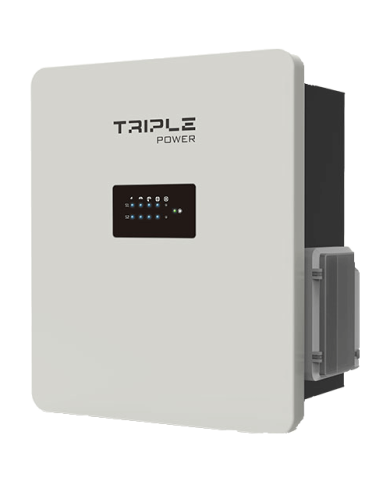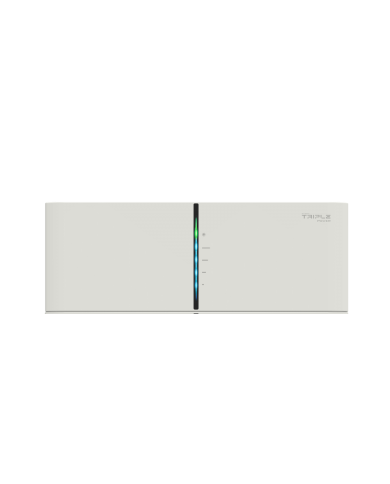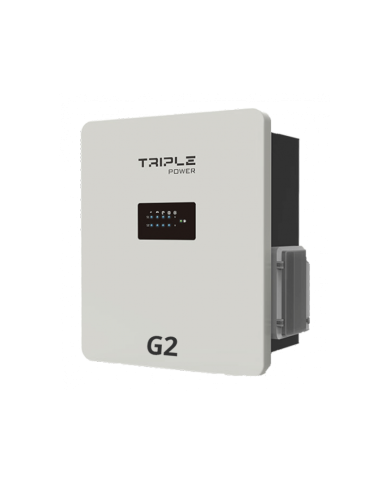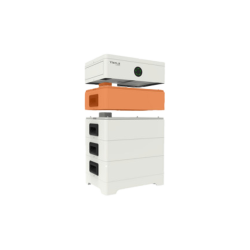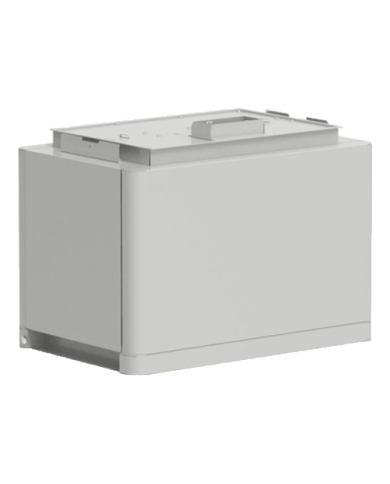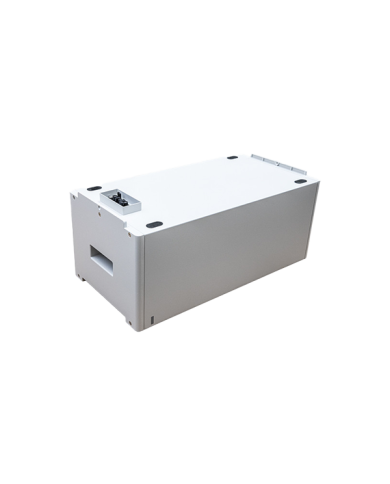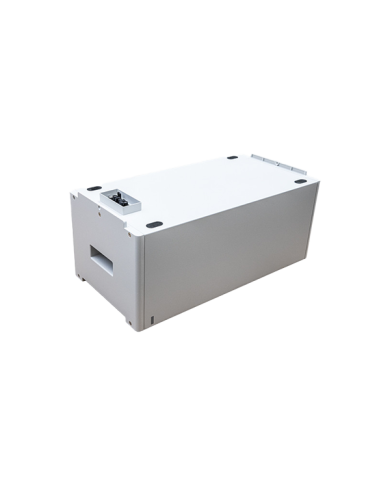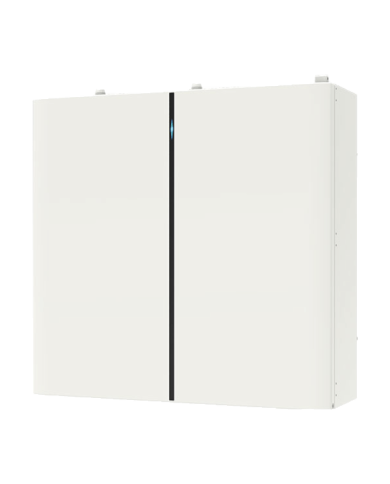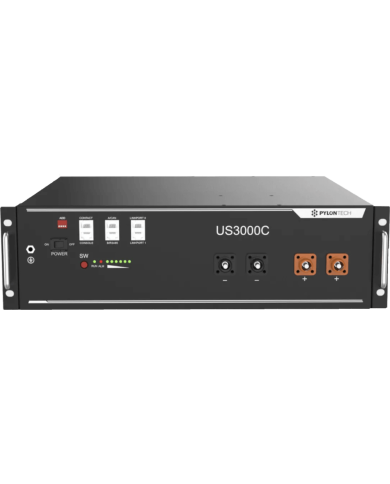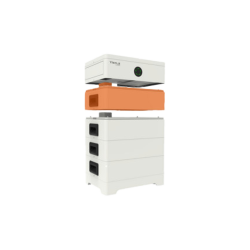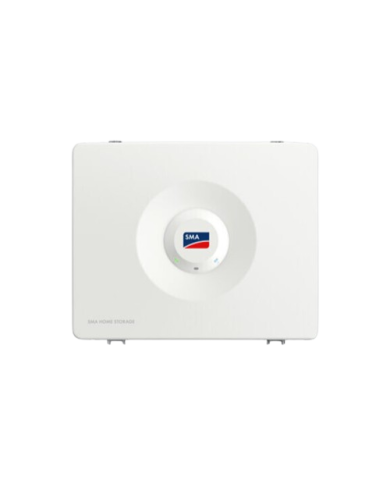There are different brands of solar inverters on the market. Let us tell you about a few brands that have been able to make their mark in the solar energy field.Energy storage is a fundamental challenge. To meet this challenge, which is above all a technological one, solar energy suppliers now offer several brands of solar batteries with different storage capacities.
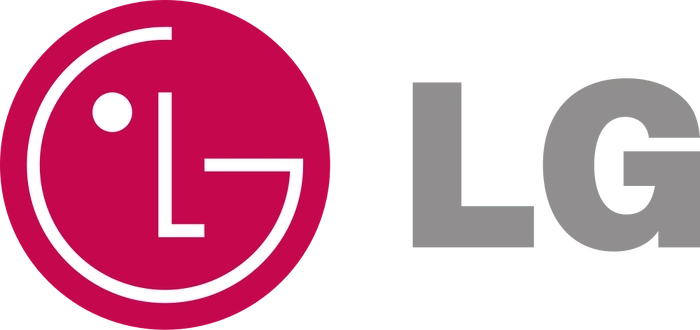 Since it was founded in 1947, LG Chem has grown steadily to become Korea's leading chemical company. Innovation has always been the watchword at this company, which is becoming a major player in the global solar energy market. It has launched a new range of LG Chem RESU batteries. LG's RESU lithium-batteries are a domestic energy storage solution that can be combined with a solar panel system. In addition, the RESU battery can be used to maximise solar energy consumption in the home. However, although the RESU battery has back-up power capabilities, it is not designed for off-grid use.
Since it was founded in 1947, LG Chem has grown steadily to become Korea's leading chemical company. Innovation has always been the watchword at this company, which is becoming a major player in the global solar energy market. It has launched a new range of LG Chem RESU batteries. LG's RESU lithium-batteries are a domestic energy storage solution that can be combined with a solar panel system. In addition, the RESU battery can be used to maximise solar energy consumption in the home. However, although the RESU battery has back-up power capabilities, it is not designed for off-grid use.
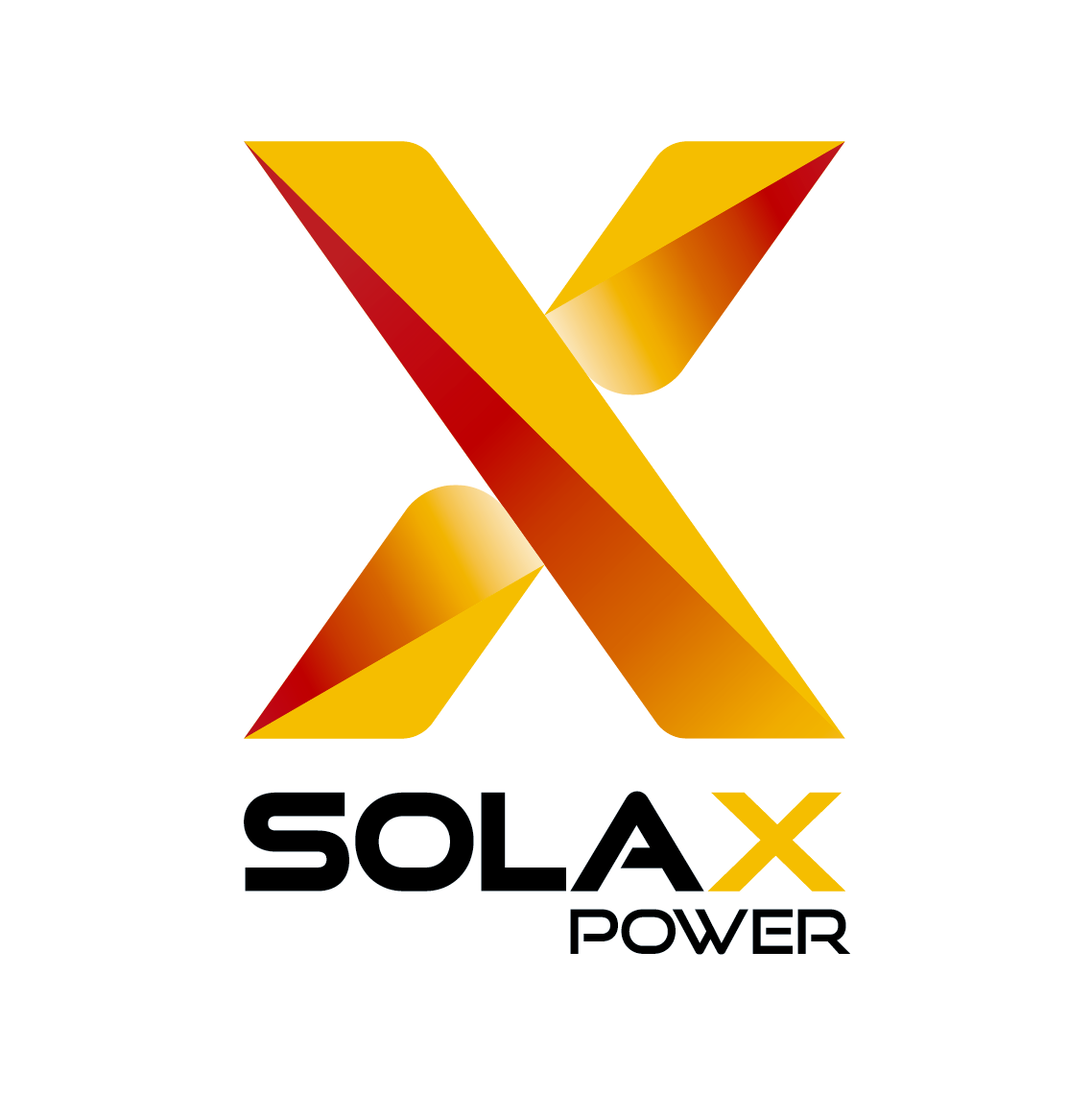 Solax was founded in China in 2003 and is based in Hangzhou. SolaX Power is one of the key players in the global technology market. SOLAX entered the European market in 2016 through a partnership with ALMA SOLAR. SOLAX launched a range of batteries called TRIPLE POWER. They have released an initial range with a capacity of 5.8kWh, which, when connected together, can go up to 46kWh. This range of TRIPLE POWER batteries caters for the residential and industrial storage markets. Subsequently, SOLAX launched smaller capacity batteries starting at 3kWH. These are the TRIPLE POWER batteries named T30. This solution is ideal for homes with low storage needs. Their capacity starts at 3kWh and goes up to 12kWH. These are 3kWh modules that fit into each other. Finally, SOLAX has just launched its latest IES range of ‘one-stand’ batteries. This means that the SOLAX inverter and its batteries fit together to form a single column. This has the advantage of extremely rapid assembly and a smaller footprint. The IES range offers storage capacities from 5kWh to 30kWh. SOLAX therefore offers one of the most comprehensive ranges of solutions on the solar panel storage market..
Solax was founded in China in 2003 and is based in Hangzhou. SolaX Power is one of the key players in the global technology market. SOLAX entered the European market in 2016 through a partnership with ALMA SOLAR. SOLAX launched a range of batteries called TRIPLE POWER. They have released an initial range with a capacity of 5.8kWh, which, when connected together, can go up to 46kWh. This range of TRIPLE POWER batteries caters for the residential and industrial storage markets. Subsequently, SOLAX launched smaller capacity batteries starting at 3kWH. These are the TRIPLE POWER batteries named T30. This solution is ideal for homes with low storage needs. Their capacity starts at 3kWh and goes up to 12kWH. These are 3kWh modules that fit into each other. Finally, SOLAX has just launched its latest IES range of ‘one-stand’ batteries. This means that the SOLAX inverter and its batteries fit together to form a single column. This has the advantage of extremely rapid assembly and a smaller footprint. The IES range offers storage capacities from 5kWh to 30kWh. SOLAX therefore offers one of the most comprehensive ranges of solutions on the solar panel storage market..
 BYD is known for manufacturing electric cars. They have started manufacturing HVS and HVM domestic batteries. These battery packs are made of lithium and operate at high voltage, i.e. up to 500V. The high voltage provides high discharge power. The HVS range of batteries has a storage capacity of 5kWh or more. BYD's HVM range starts at 8kWh and can achieve a high storage capacity of 21kWH. This solution is easy to install because the modules fit together. It's also scalable because you can increase your storage capacity later on in your installation.
BYD is known for manufacturing electric cars. They have started manufacturing HVS and HVM domestic batteries. These battery packs are made of lithium and operate at high voltage, i.e. up to 500V. The high voltage provides high discharge power. The HVS range of batteries has a storage capacity of 5kWh or more. BYD's HVM range starts at 8kWh and can achieve a high storage capacity of 21kWH. This solution is easy to install because the modules fit together. It's also scalable because you can increase your storage capacity later on in your installation.
 This company is known for making lithium batteries to power network servers. They have evolved into high voltage domestic batteries with the H2 FORCE range. This Pylontech domestic battery solution operates from 5kWh to 20kW. It is just as easy to install as the BYD batteries, as they can also be rack-mounted on top of each other. The strength of Pylontech batteries is their price. This company offers the cheapest solar batteries on the market.
This company is known for making lithium batteries to power network servers. They have evolved into high voltage domestic batteries with the H2 FORCE range. This Pylontech domestic battery solution operates from 5kWh to 20kW. It is just as easy to install as the BYD batteries, as they can also be rack-mounted on top of each other. The strength of Pylontech batteries is their price. This company offers the cheapest solar batteries on the market.
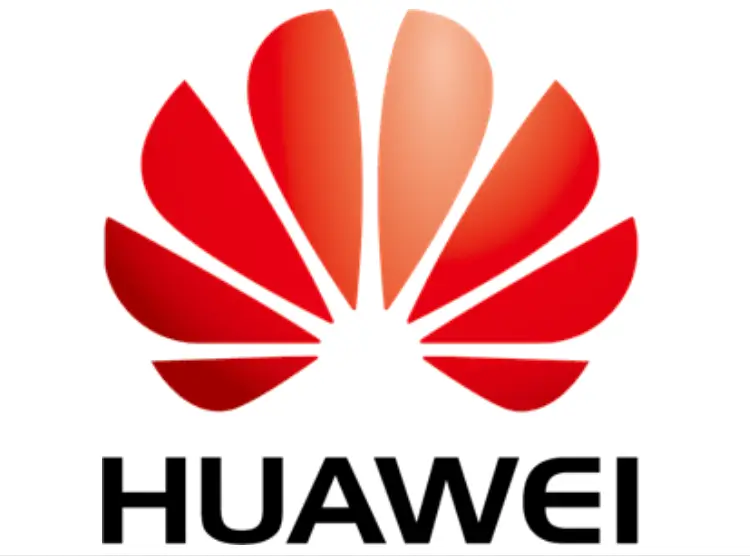 HUAWEI is renowned and known to the general public thanks to their HUAWEI mobile phone. They have developed in the solar battery and solar inverter sector. In fact, they have expertise in energy management thanks to the HUAWEI batteries included in their phones. Today, HUAWEI is making its mark on the home battery market with competitive solutions. They offer a range of S1 version LUNA2000 solar batteries from 7kWh to 21kWh, with a storage capacity of 14kWH. This is a complete solution for residential home needs. HUAWEI batteries can only be combined with their HUAWEI single-phase or three-phase inverter. The HUAWEI inverter range is called L1 for single-phase or M1 for three-phase.
HUAWEI is renowned and known to the general public thanks to their HUAWEI mobile phone. They have developed in the solar battery and solar inverter sector. In fact, they have expertise in energy management thanks to the HUAWEI batteries included in their phones. Today, HUAWEI is making its mark on the home battery market with competitive solutions. They offer a range of S1 version LUNA2000 solar batteries from 7kWh to 21kWh, with a storage capacity of 14kWH. This is a complete solution for residential home needs. HUAWEI batteries can only be combined with their HUAWEI single-phase or three-phase inverter. The HUAWEI inverter range is called L1 for single-phase or M1 for three-phase.
And there you have it, there are several brands of solar batteries for domestic use with different capacities. But are batteries the ideal solution for storing renewable energy? Is energy storage the right challenge? Or is the dilemma of how to store energy still a problem?





 Solax was founded in China in 2003 and is based in Hangzhou. SolaX Power is one of the key players in the global technology market. SOLAX entered the European market in 2016 through a partnership with ALMA SOLAR. SOLAX launched a range of batteries called TRIPLE POWER. They have released an initial range with a capacity of 5.8kWh, which, when connected together, can go up to 46kWh. This range of TRIPLE POWER batteries caters for the residential and industrial storage markets. Subsequently, SOLAX launched smaller capacity batteries starting at 3kWH. These are the TRIPLE POWER batteries named T30. This solution is ideal for homes with low storage needs. Their capacity starts at 3kWh and goes up to 12kWH. These are 3kWh modules that fit into each other. Finally, SOLAX has just launched its latest IES range of ‘one-stand’ batteries. This means that the SOLAX inverter and its batteries fit together to form a single column. This has the advantage of extremely rapid assembly and a smaller footprint. The IES range offers storage capacities from 5kWh to 30kWh. SOLAX therefore offers one of the most comprehensive ranges of solutions on the solar panel storage market..
Solax was founded in China in 2003 and is based in Hangzhou. SolaX Power is one of the key players in the global technology market. SOLAX entered the European market in 2016 through a partnership with ALMA SOLAR. SOLAX launched a range of batteries called TRIPLE POWER. They have released an initial range with a capacity of 5.8kWh, which, when connected together, can go up to 46kWh. This range of TRIPLE POWER batteries caters for the residential and industrial storage markets. Subsequently, SOLAX launched smaller capacity batteries starting at 3kWH. These are the TRIPLE POWER batteries named T30. This solution is ideal for homes with low storage needs. Their capacity starts at 3kWh and goes up to 12kWH. These are 3kWh modules that fit into each other. Finally, SOLAX has just launched its latest IES range of ‘one-stand’ batteries. This means that the SOLAX inverter and its batteries fit together to form a single column. This has the advantage of extremely rapid assembly and a smaller footprint. The IES range offers storage capacities from 5kWh to 30kWh. SOLAX therefore offers one of the most comprehensive ranges of solutions on the solar panel storage market.. HUAWEI is renowned and known to the general public thanks to their HUAWEI mobile phone. They have developed in the solar battery and solar inverter sector. In fact, they have expertise in energy management thanks to the HUAWEI batteries included in their phones. Today, HUAWEI is making its mark on the home battery market with competitive solutions. They offer a range of S1 version LUNA2000 solar batteries from 7kWh to 21kWh, with a storage capacity of 14kWH. This is a complete solution for residential home needs. HUAWEI batteries can only be combined with their HUAWEI single-phase or three-phase inverter. The HUAWEI inverter range is called L1 for single-phase or M1 for three-phase.
HUAWEI is renowned and known to the general public thanks to their HUAWEI mobile phone. They have developed in the solar battery and solar inverter sector. In fact, they have expertise in energy management thanks to the HUAWEI batteries included in their phones. Today, HUAWEI is making its mark on the home battery market with competitive solutions. They offer a range of S1 version LUNA2000 solar batteries from 7kWh to 21kWh, with a storage capacity of 14kWH. This is a complete solution for residential home needs. HUAWEI batteries can only be combined with their HUAWEI single-phase or three-phase inverter. The HUAWEI inverter range is called L1 for single-phase or M1 for three-phase.